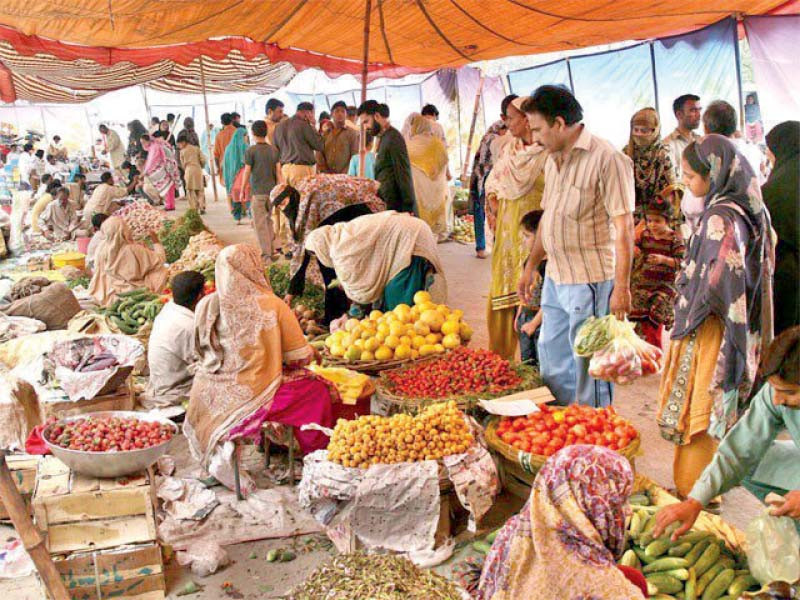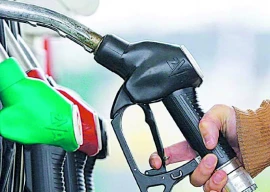
The recent surge in prices of petroleum products and power tariff is unlikely to hurt economic growth in the ongoing fiscal year despite the fact that the price hike will lift inflation reading by around one percentage point immediately.
“Strong inflows of workers’ remittances, growth in export earnings, a significant surge in wheat and sugar output and rebound in cotton production will support the achievement of nearly 5% economic growth in FY22,” Pak-Kuwait Investment Company (PKIC) Head of Research Samiullah Tariq said while talking to The Express Tribune.
Earlier, Pakistan’s central bank projected economic growth in the range of 4-5% while Pakistan Tehreek-e-Insaf (PTI) government set the growth target at 4.8% for fiscal year 2021-22.
The country notched up a growth of 4% in previous fiscal year 2020-21.
The expected increase in inflation rate has made the central bank’s case stronger for a gradual uptick in interest rate by 1-1.25 percentage points over the next one year.
“The government and the central bank are strongly expected to continue taking measures to create a balance between inflation rate and economic growth … to ensure the growth target is met,” Arif Habib Limited (AHL) Head of Research Tahir Abbas added.
Earlier, the government increased power tariff by Rs1.39 per unit to fulfill the International Monetary Fund’s (IMF) condition for the resumption of $6 billion loan programme.
It also passed on the increase in prices of crude oil in the international market to local consumers. Accordingly, the petrol price shot up by Rs10.49 to a record high of Rs137.79 per litre.
Similarly, the price of high-speed diesel and light diesel oil increased by Rs12.44 and Rs8.84 to Rs134.48 per litre and Rs108.35 per litre respectively.
“The significant surge in prices of petroleum products and power tariff is expected to increase inflation rate by 1-1.25 percentage points immediately,” Tariq said.
The two experts said that the massive rise in global commodity prices was unsustainable. Prices would come down in a few months following improvement in the supply chain of global commodities and a decline in demand.
“Prices of petroleum products may go down sometime in the second half (January-June) of current fiscal year,” Tariq said.
“Since the current fiscal year is still in its initial months (October being the fourth month), there are another eight months left to create balance in the economy and achieve the growth target.”
“Had the global commodity prices remained stable over the past few months, Pakistan would have easily achieved economic growth of over 5%.”
The government has rightly passed on the increase in petroleum product prices to the consumers in a bid to avoid mismanaging the finances. “No one would have bailed the country out had the government absorbed the price hike.”
Inflation would remain near and around the upper limit of 9% of the central bank’s projection of 7-9% for the year “with global commodity prices rationalising in the next few months,” he said.
Abbas, however, anticipated the full-year inflation reading to slightly exceed the upper limit of 9% and touch 9.25% in FY22, as prices of LNG, coal, fertiliser and food products (like wheat, sugar and cooking oil) also shot up in the global market. They are contributing to the imported inflation.
The surge in inflation reading may impact purchasing power of people belonging to lower and middle income groups. This, however, would not hurt demand for essential commodities in the economy.
The country would continue to import essential commodities including energy and foods. Whereas reducing import of luxury cars and non-essential items was already on the agency of the government to cool down the overheating economy, he said.
“The notable growth in the large scale manufacturing (LSM) sector suggests the country would manage to achieve the set economic growth target of 4.8% (in FY22),” he said.
The government and the central bank are taking measures from time-to-time to control inflation and support growth. In this regard, they imposed regulatory duties on imports and demanded traders to pay 100% import amount in advance.
The slightly higher inflation reading, however, would support the central bank to implement its past thought of gradually increasing the benchmark interest rate over the next one year.
Published in The Express Tribune, October 17th, 2021.
Like Business on Facebook, follow @TribuneBiz on Twitter to stay informed and join in the conversation.




1723032398-0/BeFunky-collage-(36)1723032398-0-165x106.webp)













COMMENTS (1)
Comments are moderated and generally will be posted if they are on-topic and not abusive.
For more information, please see our Comments FAQ